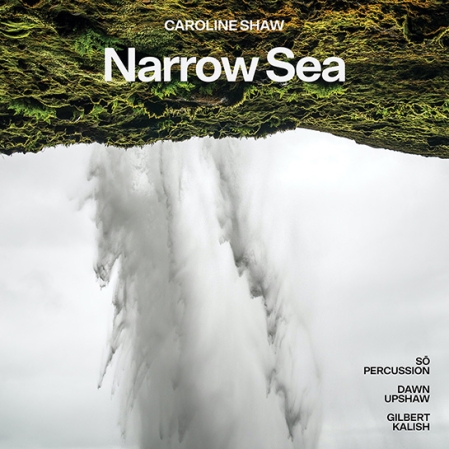Soprano Dawn Upshaw’s first full-length album with accompanist Gilbert Kalish centers on work by Olivier Messiaen that addresses devotion, faith, and love. London’s Independent calls this “a remarkable collection of songs that blurs the edges between sensual and religious transport.”
Acclaimed soprano Dawn Upshaw’s Voices of Light includes five songs by Olivier Messiaen—“Le Collier,” and “Prière exaucée,” from Poèmes pour Mi (1936); “L’Escalier redit, gestes du soleil” and “Amour oiseau d’etoile” from Harawi, Chant D'amour Et De Mort (1945); and “Résurrection” from Chants de terre et de ciel (1938)—as well as Claude Debussy’s Chansons de Bilitis (1897–98), Osvaldo Golijov’s “Lúa descolorida” (1999), and Gabriel Fauré’s La Chanson d’Ève (1906–10). Upshaw’s longtime artistic collaborator, Pianist Gilbert Kalish, joins her on the recording. Although the two have performed regular North American and European recital tours for more than ten years, Voices of Light is their first full-length album together.
For this record, Upshaw created a program centered on the Messiaen songs that address the subjects of devotion, faith, and love. To the singer, these works, which were written over a century’s time span, represent “voices of light.”
As Upshaw explains, “Messiaen’s opera Saint Francoise d’Assise includes a mysterious and unlikely angel, whose main activity is knocking on monks’ closed doors, singing her spirit into their consciousness. I was lucky enough to be cast in this role in Peter Sellars’ 1992 Salzburg production of the great composer’s only opera. My experience was that Messiaen and Peter were knocking on my door, opening my heart and voice to a range of expression that I could never have imagined. I set about researching Messiaen’s output of songs, and began to explore more of this composer’s beautifully ecstatic musical world.”
The featured works of Debussy, Golijov, and Fauré also are very meaningful for Upshaw. The three songs that make up Chansons de Bilitis—“La Flûte de Pan,” “La Chevelure,” and “Le Tombeau des naiads”—have been favorites since her college days. Upshaw and Kalish premiered Golijov’s “Lua Descolorida” in 1999, and the experience was a revelation for her; Golijov has continued to write pieces and parts for her, which she cites as possessing a “rich radiance.” The ten Fauré songs that comprise La Chanson d’Ève —“Paradis,” “Prima verba,” “Roses ardente,” “Comme Dieu rayonne,” “L’aube blanche,” “Eau vivante,” “Veilles-tu, ma senteur de soleil?,” “Dans un parfum de roses blanches,” “Crépuscule,” and “Ô mort, poussière d’étoiles”—also are very dear to Upshaw.
Three-time Grammy Award winner Dawn Upshaw is one of today’s most celebrated musicians, regularly performing on renowned stages across the globe. Over the past two decades, the soprano has gained international acclaim for her commitment to new music and her exceptionally communicative interpretations of the standard vocal repertoire. Her 1997 Salzburg and Paris performances in Robert Wilson’s production of Debussy’s Pélleas et Mélisande were highly praised by both audiences and critics, as was her performance in the Metropolitan Opera’s 2000 production of the opera.
Upshaw has been featured on more than 50 recordings, including recital discs of music ranging from Baroque to contemporary, as well as several recordings of music-theater material and full-length operas. Since her 1987 Grammy Award-winning debut disc Knoxville: Summer of 1915, Upshaw has been featured on 20 Nonesuch discs, including the internationally successful Symphony No. 3 by Henryk Gorecki, which has sold more than one million copies, placing it among the best selling classical records of the era. Her recent recording of Berg’s Lyric Suite with the Kronos Quartet earned a Grammy in 2004. Upshaw and Kalish played together on the 1993 Nonesuch recording of John Harbison’s Simple Daylight. Kalish also was a frequent recital partner of one of Upshaw’s teachers, Jan DeGaetani, with whom he made several Nonesuch recordings.
Dawn Upshaw, soprano
Gilbert Kalish, piano
Produced and engineered by Max Wilcox
79812

















